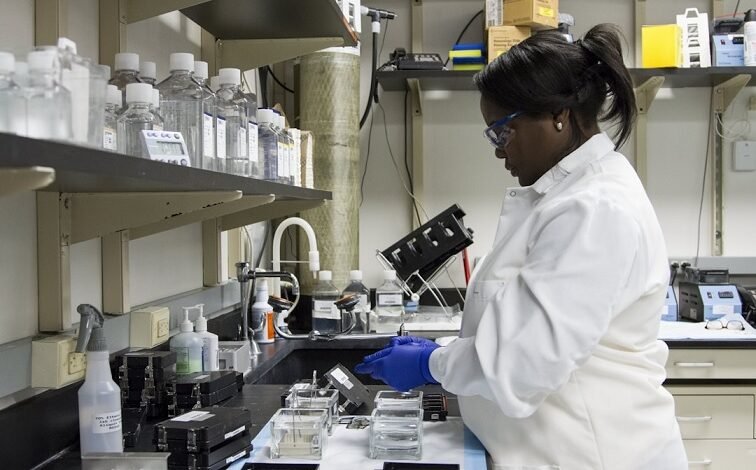Why You Should Consider a Master’s in Genomics

The study of genomics has become pivotal in understanding the complex tapestry of human biology and its myriad applications in health and disease. Pursuing a master’s in genomics can open doors to revolutionary fields such as pharmacogenomics, bioinformatics, and personalized healthcare initiatives. This advanced degree blends biological sciences with technology, equipping graduates to partake in and contribute to the groundbreaking discoveries that are redefining medical treatments and healthcare delivery. As genomics becomes increasingly central to various sectors, particularly healthcare and research, an advanced degree can be the key to unlocking potential career paths and leadership positions. Below, we delve into the myriad reasons to pursue a master’s in genomics today.
Exploring the Rapid Evolution of Genomic Sciences
The field of genomic sciences is characterized by its swift evolution and technical advancements. What began with the monumental Human Genome Project has now expanded into a vast array of specialized disciplines such as transcriptomics and epigenomics. A master’s degree in genomics prepares students to understand and contribute to this dynamic field, staying abreast of recent breakthroughs that decipher the intricate details of the genome.
Academic institutions are responding to this transformation by offering specialized genomics masters programs, which provide a comprehensive curriculum on the latest in genomic research and technologies. As the applications of genomic sciences become more widespread, encompassing agriculture, forensics, and conservation biology, the need for expertise in the field multiplies.
Professionals with a master’s degree in genomics are positioned at the forefront of managing large-scale genomics projects. These projects often involve multidisciplinary teams and cutting-edge research, demanding a strong grasp of both scientific principles and project management skills. This evolution reshapes not only the life sciences industry but also the approach to tackling some of humanity’s most pressing challenges.
The Role of Genomics in Personalized Medicine
The advent of genomics has ushered in a new era of personalized medicine, where treatments can be tailored to the individual genetic makeup of patients. Master’s graduates in genomics are key players in this transformative field, facilitating the transition from one-size-fits-all remedies to customized care protocols. Their expertise enables the identification of genetic markers that can predict an individual’s response to specific medications, thereby reducing trial-and-error prescriptions.
The intersection of genomics and personalized medicine continues to expand with the ongoing discovery of genetic variants associated with disease risk and drug response. Healthcare providers equipped with genomics knowledge can offer more precise preventive care strategies by considering a person’s unique genetic risk factors. This shift not only improves patient outcomes but also helps in managing healthcare costs by avoiding ineffective treatments.
Advancements in Genomic Technologies and Their Impact on Research
Technologies in genomics are advancing at a breakneck pace, contributing to faster, cheaper, and more accurate genetic analyses. Innovations such as CRISPR-Cas9 gene editing and next-generation sequencing have revolutionized the field, making genomic research more accessible and comprehensive. These advancements are not just academic; they are vital tools streamlining the diagnosis and treatment of diseases.
Master’s graduates in genomics find themselves at the cutting edge, learning to use and contribute to the development of these technologies. Their in-depth understanding of these platforms is instrumental in maximizing their potential and overcoming challenges in their implementation. As technology moves forward, so does the complexity and volume of data produced, creating a need for individuals skilled at managing and interpreting this wealth of information.
Navigating the Ethical Landscape of Genomics With Advanced Education

The study of genomics is not limited to scientific and technological aspects but also encompasses ethical considerations. The ability to alter the genetic makeup of organisms, including humans, raises profound questions about ethics and responsibility. A master’s program in genomics often includes coursework addressing these important issues, preparing graduates to contribute thoughtfully to these conversations.
Genomics professionals play a crucial role in setting standards and guidelines for responsible research and application of genomic technologies. Understanding ethical, legal, and social implications allows them to act as mediators between the scientific community and the public. They are charged with the task of ensuring that genomic advances benefit society while safeguarding individual rights and privacy.
Overall, a master’s degree in genomics equips individuals with vital skills and knowledge that propel them to the forefront of an ever-evolving and ethically challenging landscape. Whether looking to shape the next generation of therapeutics, inform personal healthcare decisions, or address larger societal questions, advanced education in genomics opens a world of possibilities for passionate individuals ready to make a difference.




